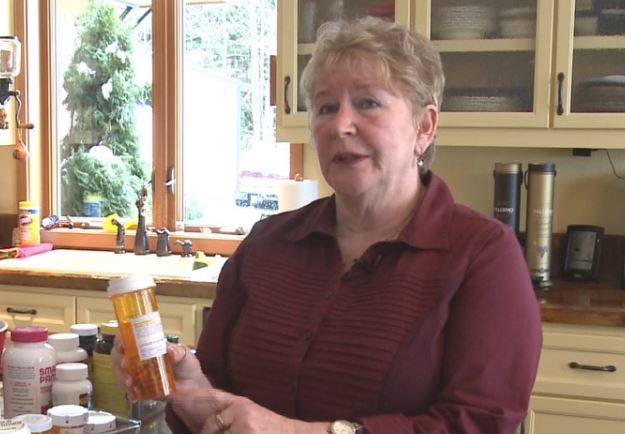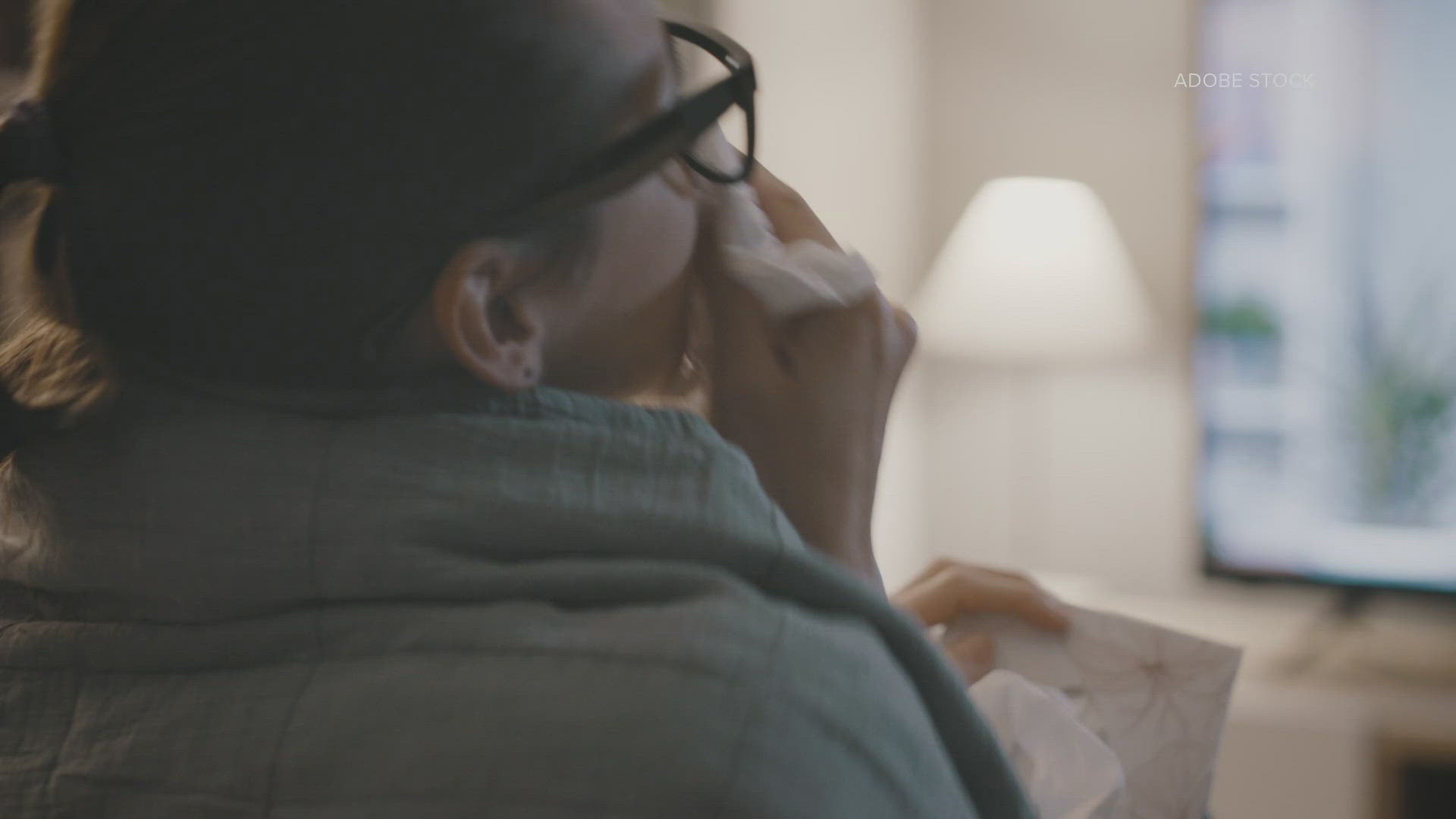Bonnie Shultz of Camano Island has been through the medical ringer. Between 2007 and 2012 she bounced from doctor to doctor to figure out what was wrong with her. It began at the age of 54 when she found out she had high blood pressure.
Diagnosed with hypertension, she was put on medication to treat that. But she had more symptoms, including leg pain and extreme exhaustion. More trips to more doctors led to a diagnosis of inflammation of the kidneys. The next diagnosis was bone cancer.
But Bonnie Shultz didn’t have any of those ailments. And treatments for the misdiagnoses left her sicker than ever. She was given chemotherapy she didn’t need that reduced her kidney function to 40 percent.
Finally, in 2012 a rheumatologist in Everett figured it out: Bonnie had a rare disease - a slow-growing blood cancer that, if left untreated, is life-threatening.
“(The doctor) called us up one day and said ‘I figured out what’s going on. I have good news and bad news. You have Erdheim-Chester Disease,’” said Bonnie.
Erdheim-Chester Disease (ECD) is one of 7,000 rare diseases and disorders that affect 30 million Americans. Since 2008, the last day of February has been deemed Rare Disease Day. This year 94 countries across the globe will hold events to bring awareness and education.
According to Eurordis, Rare Diseases Europe, which launched the first Rare Disease Day, the exposure is important to help both the general public and medical professionals recognize these diseases earlier.
“Building awareness of rare diseases is so important because 1 in 20 people will live with a rare disease at some point in their life. Despite this, there is no cure for the majority of rare diseases and many go undiagnosed,” said Eurordis officials.
Since Bonnie Shultz’s diagnosis of ECD she’s been treated with a combination of drugs including the first ever FDA-approved treatment for certain ECD patients called Zelboraf (also known as vemurafenib). Vemurafenib has been used since 2011 to treats patients with melanoma, but in November was approved for ECD patients who have a specific genetic mutation known as BRAF V600. Between 50 and 60 percent of ECD patients are BRAF positive.
Common symptoms of ECD include bone pain in legs and knees, balance issues, excessive thirst/urination, shortness of breath, excessive fatigue, weight loss, vision problems and reduced kidney function. Bonnie has responded well to treatment and is back enjoying her life.
“I think I’m good. I’m so incredibly blessed and lucky for how well I’m doing.”
Bonnie is being treated at the Seattle Cancer Care Alliance (SCCA) by Dr. Paul Hendrie, a hematology specialist who is one of the few medical professionals in the country with expertise with ECD. SCCA is one of only two ECD care centers on the West Coast. A third, Stanford Medical Center, is expected to become a care center as well.
Hendrie has seen incredible advancements in the treatment of rare blood disorders in recent years.
“I think we are going to find many cures for these diseases and if not a cure, (then) turning them into a manageable disease like we treat hypertension,” said Dr. Hendrie.
Breakthrough ECD research has taken place at Memorial Sloan Kettering Cancer Center where the FDA-approved drug came as a direct result of research there. Physician-in-Chief Dr. Jose’ Baselga and Dr. Eli Diamond, a neuro-oncologist, were instrumental in the clinical trial and positive outcomes.
“We’ve come a very long way in a short amount of time. When I started treating ECD, patients with severe disease would often die. Now, I see very, very limited mortality. The patients often do well,” said Dr. Diamond. “It is so incredibly rewarding to work with ECD patients. They have been through so much. They are courageous and I get to see them get better, so it’s very rewarding. Plus, ECD patients are consistently the loveliest and nicest people you’ll ever meet.”
Being diagnosed with a rare disease that most people have never heard of is a scary proposition for patients and families. Rare disease medical professionals and advocates said getting up-to-date information is extremely important.
“I advise my patients to stop reading about the disease on the internet. I’ll print out information for them or point them in the right direction. With most rare diseases there is a wide variation of how patients present with symptoms and the most negative cases tend to end up online. The information is also often outdated,” said Dr. Beth Martin, a hematology specialist at Stanford.
A key to finding better treatments and cures for rare diseases is funding and clinical trials. According to Dr. Martin, Americans are less likely to enroll in a clinical trial compared with patients in other parts of the world, such as Europe.
“Less than two percent of adults eligible for clinical trials agree to take part in the United States. If you are eligible for a trial, I would urge patients to consider enrollment. That is how we find cures and treatments,” said Martin.
In fact, it was a clinical trial involving melanoma patients that led to that first-ever FDA approved treatment for ECD. Medical researchers rely on each other’s findings to improve outcomes for people with both common and rare diseases. Bonnie Shultz is one such patient now benefiting from those trials and advancements.
“Right now (ECD) isn’t affecting our lives at all from what I can tell, other than the fact I can’t remember a few things,” said Bonnie.
For patients and families struggling to find a diagnosis, or for those newly diagnosed with a rare disease, advocates said the most important advice is to not give up.
“Stand up. Talk about it. Get involved, donate, volunteer, don’t give up,” said Kathy Brewer, president of the Erdheim-Chester Disease Global Alliance. “Sometimes it can seem overwhelming, especially when those who are meant to help us, like a doctor, don’t have the ways or means to help. Just because one doctor can’t help doesn’t mean another cannot. Keep trying.”


